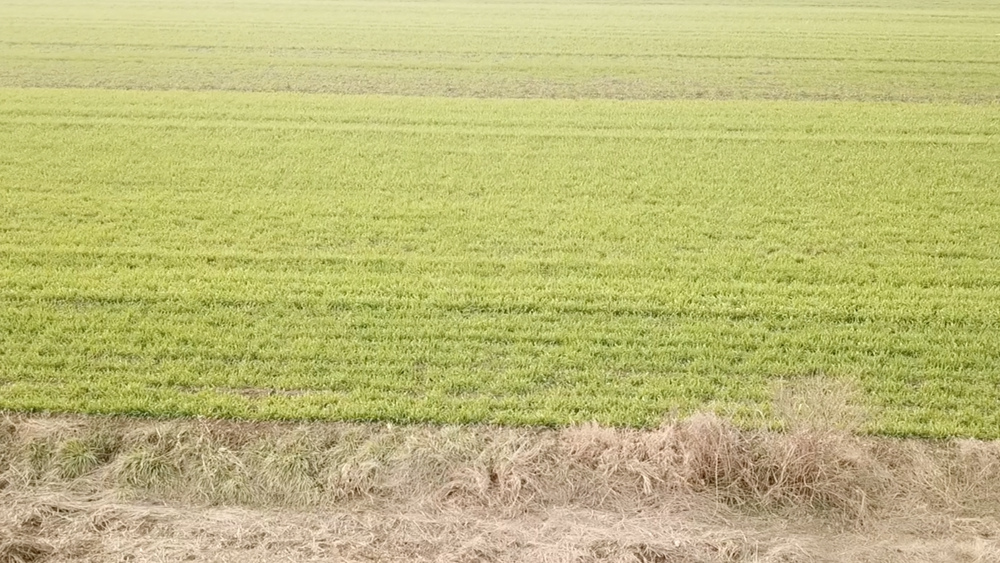
Domestic
16:52, 28-Feb-2019
Countryside exodus leaves Chinese farmlands unattended
Updated
15:57, 01-Mar-2019
Li Jianhua

As more rural Chinese seek new lives in cities, many of China's farmlands are left deserted. To prevent a negative ripple effect from China's poverty alleviation efforts, cooperatives are stepping in to save the abandoned farmlands.
Zhu Zaifeng, 58, leaves his village in central China's Henan Province for Hangzhou in eastern China for work, regularly leaving his land subject to weeds.
"We can make at least 2,000 to 3,000 yuan (294 to 441 U.S. dollars) each month if I work outside. It's much better than farming at home, isn't it?" said Zhu. "My kids are all working in cities, and the old are left home. I'm not able to do farm work anymore."
To save his land, Zhu goes to the local cooperative in his village, which pays him about 4,000 yuan each year to use the land while he's away. Zhu possesses nearly eight mu (0.533 hectare) of farmland, and for each mu, he is paid at least 500 yuan.
Official figures show China's rural population decreased by 69 million from 2013 to 2017, as the nation ramps up urbanization efforts, according to Chinese Academy of Social Sciences.
The farmlands across the Chinese countryside are scattered, and the cooperatives are connecting the dots to make the land more fruitful by adopting the same standards of farming.
"The mode of entrusting idle land to the cooperatives enables us to farm by the same standards under intensive management – the same method of cultivating the lands, the same seeds, and the same scale. This can lower costs, reduce labor force and boost productivity," said Zhang Feng with Chuangfu Farm Machinery Cooperative, based in central China's Huaibin County.
Zhang went on record as saying that China's agricultural modernization may have a long way to go, despite the efforts the government takes to boost the nation's agricultural development. Also, Zhang suggests the authorities should give more support to the rural cooperatives.
Poverty alleviation in rural China
Chinese authorities have made rural China the focus of its poverty alleviation efforts, according to its newly published document, known as No.1 Document, pertaining to the country's agricultural development.
The latest figures from China's State Statistics Bureau indicate that the country still had an impoverished population of some 16.6 million at the end of 2018. The number is expected to be down to zero by 2020, when poverty will be "eradicated." And in some areas, the local authorities are racking their brains to achieve that goal early at the end of this year.
Some analysts believe land reforms, among others, will contribute to the cause of China's poverty alleviation efforts.
"We should take all means necessary to increase farmer incomes. Therefore, the government should redistribute resources from the cities to the countryside by adjusting policies in rural China. The land management system, property rights system, and agricultural internal system all could use a reworking," said Zhang Hongyu with Tsinghua University.
The No.1 Document, has focused on the development of agriculture since 2004. It elaborates on deepening rural reforms in its basic management system, land system, collective property rights and agriculture supporting system.
"Rural land reform continues its top position on the reform agenda, given its essential role in both stabilizing the rural community and boosting the rural economy," according to Xu Jin, Assistant Dean of the China Institute for South-South Cooperation in Agriculture at China Agricultural University.
The country's rural land is collectively owned and has been contracted to the rural households since the reform and opening-up about 40 years ago.
Pilot market-oriented reforms – aiming at separating rural land rights – were introduced five years ago. One milestone is the revised Rural Land Contract Law which took effect starting 2019. Most notably, the revised law enables the farmers to transfer their land management rights while holding up to the land contract rights, which observers believe can release rural labor force.
Chinese authorities and law makers have been making revisions to the country's land laws, so as to stabilize the situations in the rural regions. Nevertheless, the measures at the moment are not stemming the farmers' exodus from the countryside, as most rural youngsters seek a new destiny in towns and cities.

SITEMAP
Copyright © 2018 CGTN. Beijing ICP prepared NO.16065310-3
Copyright © 2018 CGTN. Beijing ICP prepared NO.16065310-3